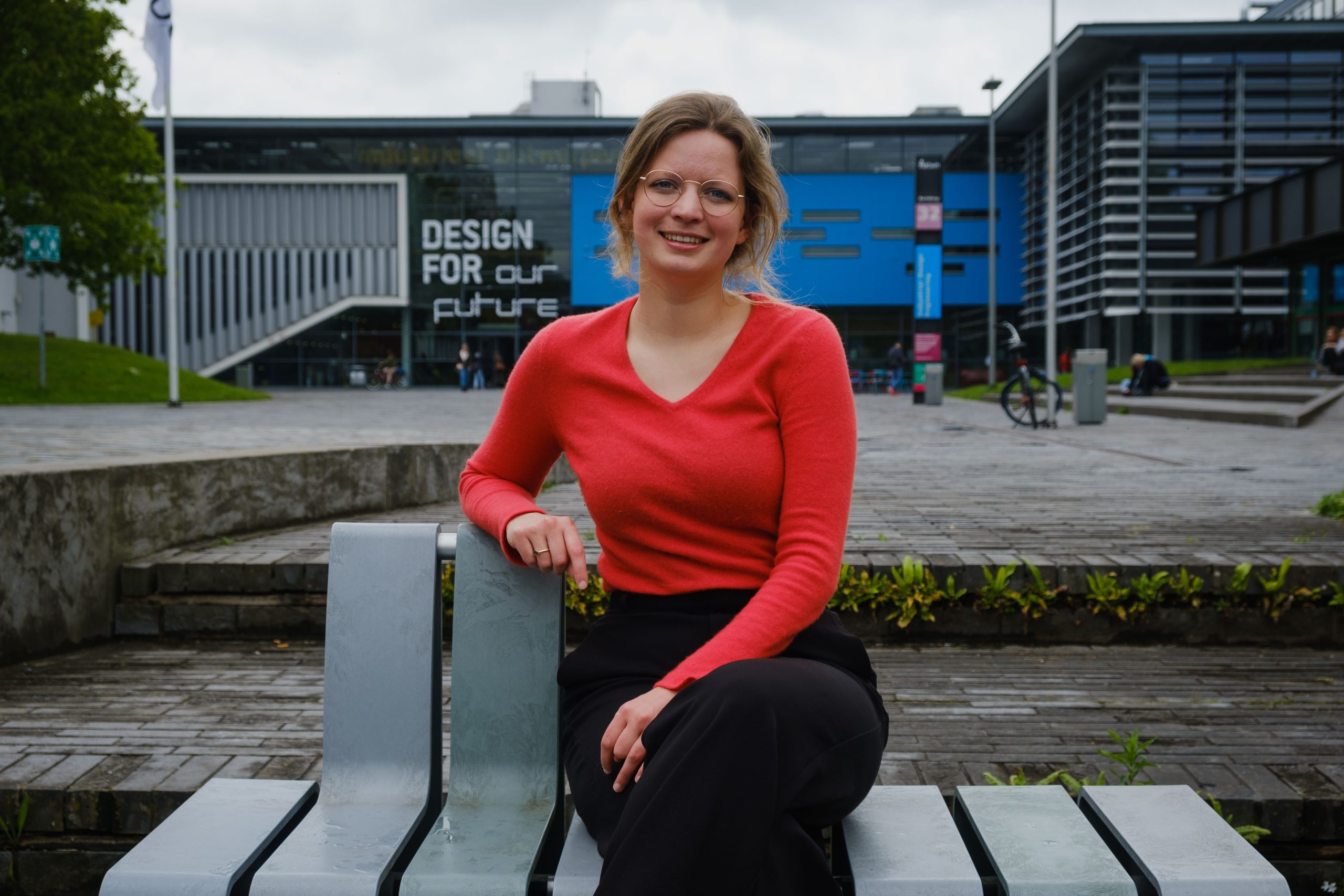Much can be improved in the communications between academics, policymakers and the public, says PhD candidate Lieke Brackel. She did a highly popular EU traineeship.
PhD student Lieke Brackel: "The cabinet of Frans Timmermans is very popular. Whether you get hired depends very much on your background." (Photo: Jaden Accord)
Not many PhD candidates can say that they were members of the Cabinet of Vice President Frans Timmermans of the European Commission, but Lieke Brackel (Technology, Policy and Management) can. After a lengthy selection procedure, she made it through to the top 5% of applicants for a traineeship at the European Commission. Starting in October 2022, she spent five months in Brussels where she realised that academics often had to change their communication approach for the political audience.
It sounds as though you had to undergo a heavy application procedure. What was it like?
“To me, it was a competitive application process. Of the more than 10,000 applicants, about 800 were hired by the European Commission. On top of that, Frans Timmermans’ Cabinet is very popular. Whether you are hired or not depends on your background. I had a lot of politics and communications work under my belt. I had done an internship at the Ministry of Infrastructure and Water Management and had taken lessons for a year at the BKB Academy (in Dutch) on running public administration campaigns and communications. I am also involved in politics. I lobbied for sustainable transport in 2019 with a group of young people at the climate conference in Madrid (COP25).”
What does Timmersmans’ Cabinet do and what did you do?
“The Cabinet supports Frans Timmermans in his position as Executive Vice President of the European Commission. His portfolio is the Green Deal which covers all the environmental and climate policies of the European Commission. One of the things Timmermans did was to present plans to reduce packaging waste, such as the ban on disposable plastic straws. Working in this Cabinet was a wonderful way to learn how politics works from the inside. My knowledge of climate adaptation and international land and water management was very useful as I could make contributions to subjects in the Green Deal.”
‘You sometimes need to dare stop using technical terms’
What were your tasks?
“My primary task was to support Timmermans’ Communications Advisor. I prepared interviews, speeches and press conferences on subjects like the Circular Economy legislation to reduce raw materials usage and environmental pollution. We followed the negotiations, thought about the questions that journalists might ask, wrote media analyses, and prepared communications materials. So we were prepared for questions about the resistance from part of the packaging industry (in Dutch). I also brought Timmermans’ speeches to the attention of journalists. My supervisor mostly maintained the contacts and I made sure that texts were available as quickly as possible on the EU press corner. After a while, I could also work on various policy dossiers and negotiations on the climate policy and the circular economy.”
You are a co-author of a chapter in the latest Intergovernmental Panel on Climate Change report about the impact of climate change. How did this come about?
“Given my knowledge of water management, in 2020 I was asked to help in a major review of scientific articles for the water chapter in the latest IPCC report. This was great for me as a PhD student as other academics write those articles of course. This review is a clear example of how all those academic publications, with all those pinpricks of knowledge, are joined up in one big pile.”
What is your own doctoral dissertation about?
“It’s about climate adaptation. In particular, I am researching how the concept of justice can be used in long-term planning for land use. These could be plans to rewet peatlands, or create room for rivers and dykes.”
What do you think can be improved in the communications about environmental policy?
“A lot. After all, why are people not taking action while the facts about climate change and climate adaptation are so clear and become even clearer all the time? Technical terms such as ‘climate adaptation’ in communications may be an issue. People do not know what it means and they cannot visualise it. So you need to reword it, but as academics, you also want to make sure that the definition is the same as that of the IPCC. The upshot is that you sometimes need to dare stop using technical terms.”
‘A simple message could make scientific information more relevant to the debate
Apart from the substance of their message, what else should academics be aware of?
“Academics could exert influence more effectively by lobbying at the right time. They could draw the attention of policy officers, especially EU parliamentarians, to a simple message just when a bill on their subject is being negotiated, and could make information from science more relevant to the debate. One example is the lobby by the German car industry against new legislation on combustion engines. Given the significant amount of money for the lobby from the industry, a well-timed comprehensible message – which scientific articles usually are not – could have created a better balance with science in the debate.
TU Delft is already trying to raise greater awareness about science. It has an office, the Climate Action Hub, in The Hague. The balance must still be found in how academics should continue lobbying and how actively they should do so, but it is always good if academics would translate their research to policy and politics more often, and take the time and resources to do this well.”
Thirza Bolhuis / Stagiair



Comments are closed.